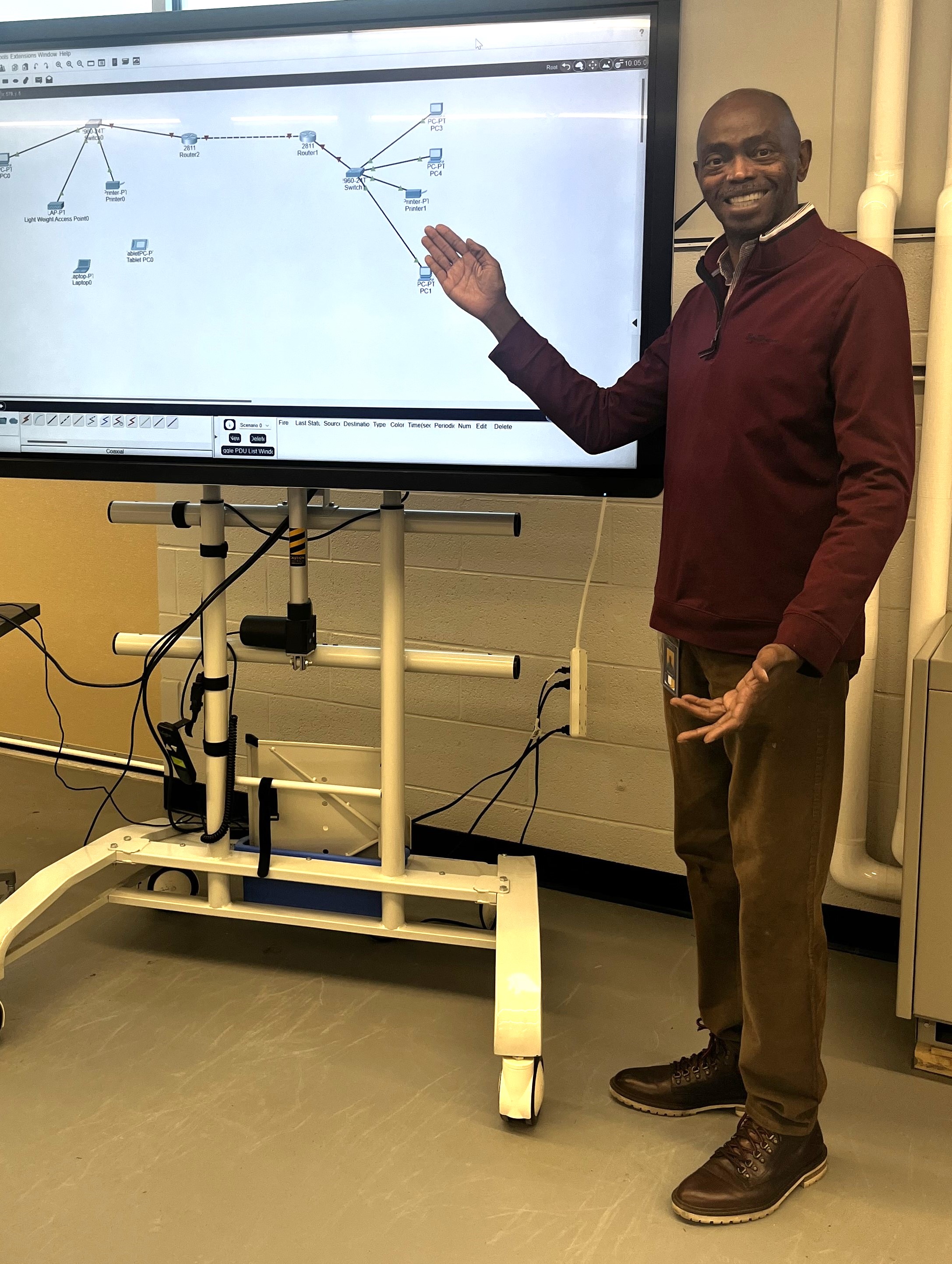Educators define issues: You can help
Over a long career—first in the U.S. Army and now as a teacher in the career and technical education (CTE) field—MEA member Mike Cook has always used education and training to reinvent himself and build a resume of marketable skills.
This year Cook began creating a new CTE program in Redford Union Schools, a western suburb of Detroit, to teach young people skills needed to work in high-paying, in-demand careers such as network administrator, information security specialist, and cyber-security analyst.
But he’s worried the dismantling of the U.S. Department of Education now being attempted by the Trump administration will destroy his fledgling program and others like it.
“A whole lot of programs are run by the Department of Education that are very important,” Cook said. “If the department goes away and that federal funding is cut, the states will be left to fill in as best they can—and they will have tough choices to make.
“They’ll have to decide what’s more important between things like reading programs, school lunches and CTE. How do you choose?”
Newly installed U.S. Education Secretary Linda McMahon, who hails from the world of professional wrestling and brings no education experience or expertise to the role, has said her mission is to close the department. She began her tenure by firing half of the department’s workforce.
Michigan Attorney General Dana Nessel called the move “dangerous, reckless, and unacceptable.”
Nessel is one of 21 Democratic state attorneys who filed suit, with support from MEA and other Michigan education leaders, to challenge unconstitutional dismantling of the Education Department without Congressional approval.
At stake for students and families nationwide is access to opportunity, and Americans are soundly against eliminating the Education Department—opposing the idea by a roughly two-to-one margin, 65% to 30%, in an Associated Press/Ipsos poll conducted last month.
Cash-strapped rural and urban districts would be hardest hit by closing the Education Department, which delivers funding to help states lower class sizes, provide special education services to students with disabilities, feed hungry children, and lower the cost of college and vocational training.
“When you lose CTE programs, you lose the opportunity to train students in a skill they can use forever,” Cook said. “But the local area and local businesses lose too—they lose skilled workers which they’re in desperate need of.”
He doesn’t know what will happen to his CTE program next year, given all of the uncertainty. The school district invested up front to buy equipment and retrofit a space in the high school for the new IT program.
After the initial outlay, the district expected to receive a grant through the Education Department’s Perkins Act funding, the modern-day version of a Vocational Education Act first passed by Congress in 1917. Now that program and many more are on the chopping block.
What will be lost if federal supports disappear?
“When you lose CTE programs, you lose the opportunity to train students in a skill they can use forever or give them college credits to get started on a degree if that’s what they want to do,” Cook said. “But the local area and local businesses lose too—they lose skilled workers which they’re in desperate need of.”
Michigan received nearly $1.3 billion in federal funding for K-12 programs in fiscal year 2024. MEA has developed a breakdown by district of federal funding for at-risk and special education students, just a portion of the department’s work.
For higher education, 156,869 students received federal Pell Grants totaling $831 million to make college more affordable, and more than 27,000 Michigan children are enrolled in Head Start programs that receive $425.1 million in federal funding. Another $231 million supports child care & development programs.
On a societal scale, the most vulnerable students and communities will face the most harm, Cook said. “It’s very complicated, but it’s going to hit a lot of different people out there. They may not realize it yet, but they will be feeling the effects very soon.”

You can help!
MEA is looking for more educators like Mike Cook who can speak about what will be lost in their schools if federal funding dedicated to public education gets cut, redirected, or shifted toward voucher programs and private school tuition schemes.
If you have a story or want to get involved, contact MEA Voice Editor Brenda Ortega at bortega@mea.org.



